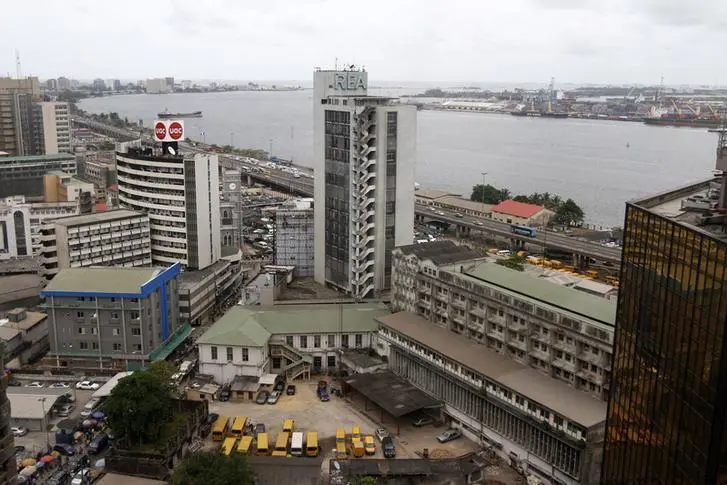PHOTO
IN the past month, there have been sweeping changes in the foreign exchange markets in Nigeria. The most important of these changes is the decision to introduce a single, market-determined exchange rate for all transactions, which is at odds with the policies of the Central Bank of Nigeria (CBN) since 2015.
The government had a separate exchange rate; the airlines had theirs; small businesses and manufacturers used a different rate; and individuals could access FX at different rates based on the purpose. Even worse, those who had the capacity to buy the FX they needed could not due to rationing. Those who had the FX to sell were not allowed to do business at their preferred rate. It was an absurd arrangement. Unlike the apathy that greeted the prior stance of the CBN, the ongoing reform has been cheered by both foreign and domestic investors. In fact, Nigerian stocks and eurobonds have recorded significant gains due to a boost to investor confidence. There is also a further expectation that the creditworthiness and investment profile of the country will improve. All it took was a simple declaration that end-users should do business at the same exchange rate and FX dealers are free to negotiate deals without restrictions.
While investors have benefited from these changes, everyday Nigerians are yet to recover from the economic damage wrought by the old order. Nigeria’s per capita income, an imperfect but the most popular measure of economic well-being, declined by 31.8% from $3,201 in 2014 to $2,184 in 2022. This is a significant dent on economic performance that has condemned 20m+ more Nigerians to poverty. The FX framework of old prevented both foreign and domestic investors from investing to develop Nigeria. Uncertainty around FX is a big limitation in doing business. As Nigeria is faced with a chronic lack of resources needed for the economy, this imposed heavy costs. It meant that investors who were looking to put boots on the ground either stayed on the sidelines or invested in other markets. It meant that those who needed FX for projects had to delay or cancel projects. It meant that those looking for foreign partners suffered as Nigeria became less attractive as an investment destination. For everyday people, it meant that the jobs that should have been created were not available and the hospitals to access care were not built.
Related Posts The anarchy in the South-East Environmental NGOs flay FG’s suspension of taxation on single-use plastics Aviacargo committee visits Lilypond Customs area command
In the stock market, a vehicle for wealth creation for households, the participation of foreign investors dropped to less than 20 percent in 2020 from more than 50 percent in the preceding years. This meant that investors in the market missed out on opportunities for growth as the demand for stocks from the foreign investor segment thinned out. The old order also disrupted the efficient allocation of resources in the economy. With the CBN deliberately picking winners and losers, and allocating FX based on its own whims, the economy has missed out on many growth opportunities. After all, economists, for all of their brilliance, cannot predict the future. In a market system that gives economic agents equal opportunity to participate in the FX market, the businesses which will create the most value would naturally emerge. Instead, corruption and racketeering were rampant. The wide spread between the official and parallel market rate at a record high of N290/$1 incentivised corruption as there was a 63% profit to be made through arbitrage. The staff in the banking system who were in charge of FX allocations were feted. After all, economic agents needed to appeal to them to get FX. For such rare access, many palms were reportedly greased.
The old FX arrangement also made the economy vulnerable to shocks. By maintaining a fixed exchange rate, which many important transactions and prices such as for petrol, electricity, and airline tickets relied upon, the economy now faces sharp adjustments that would cripple households and businesses. It is devastating to deal with a sudden two-fold rise in the cost of petrol per litre. Gradual changes in the exchange rate over a longer period of time would have made this less sudden and more manageable. Perhaps the most outrageous outcome of the fixed exchange rate system with multiple exchange rates was how it weakened the credit worthiness of the government. Government’s share of oil revenues, which is collected in dollars and converted at the official rate, was lower than it should normally be. The government was effectively subsidising the privileged among the citizens who could access FX officially. This is unreasonable for a government with scarce resources and a huge developmental challenge. The government had little resources to run its offices, not to mention providing social goods to the public.
The consequence of this path of action was an aggressive borrowing by the FG, which was enabled by the CBN through ways & means, and has put public finances in a precarious situation. Nigeria’s credit rating was downgraded to Caa1 from B3 in 2023 by Moody’s, the worst since 2006, just before Nigeria settled its obligations to the Paris Club. We should welcome the quick gains the ongoing reform in the FX market is bringing but not lose sight of what is important. We must not forget that restoring Nigeria to a path of economic growth that would boost living standards and reduce poverty is the ultimate goal and would not come as easy.Undoing a bad FX policy is easy, committing to it long-term to support the creation of value and economic prosperity requires greater will on the part of policymakers. In this regard, we must count the costs of the bad FX policy of the past eight years as a reminder that this history must not be repeated.
Opeyemi is a Lagos-based financial analyst
Copyright © 2022 Nigerian Tribune Provided by SyndiGate Media Inc. (Syndigate.info).
by Tribune Online





















